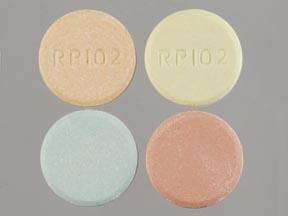Calcium carbonate Interactions
There are 225 drugs known to interact with calcium carbonate, along with 5 disease interactions, and 1 alcohol/food interaction. Of the total drug interactions, 13 are major, 159 are moderate, and 53 are minor.
- View all 225 medications that may interact with calcium carbonate
- View calcium carbonate alcohol/food interactions (1)
- View calcium carbonate disease interactions (5)
Most frequently checked interactions
View interaction reports for calcium carbonate and the medicines listed below.
- Aspirin Low Strength (aspirin)
- Benadryl (diphenhydramine)
- Colace (docusate)
- CoQ10 (ubiquinone)
- Crestor (rosuvastatin)
- Cymbalta (duloxetine)
- D3 (cholecalciferol)
- Eliquis (apixaban)
- Fish Oil (omega-3 polyunsaturated fatty acids)
- Flonase (fluticasone nasal)
- Iron Sulfate (ferrous sulfate)
- Lasix (furosemide)
- Lipitor (atorvastatin)
- Metoprolol Succinate ER (metoprolol)
- Metoprolol Tartrate (metoprolol)
- MiraLAX (polyethylene glycol 3350)
- Omega-3 (omega-3 polyunsaturated fatty acids)
- Probiotic Formula (bifidobacterium infantis / lactobacillus acidophilus)
- Singulair (montelukast)
- Synthroid (levothyroxine)
- Tylenol (acetaminophen)
- Vitamin B Complex 100 (multivitamin)
- Vitamin B12 (cyanocobalamin)
- Vitamin B6 (pyridoxine)
- Vitamin C (ascorbic acid)
- Vitamin D2 (ergocalciferol)
- Vitamin D3 (cholecalciferol)
- Zinc (zinc sulfate)
- Zofran (ondansetron)
- Zyrtec (cetirizine)
Calcium carbonate alcohol/food interactions
There is 1 alcohol/food interaction with calcium carbonate.
Calcium carbonate disease interactions
There are 5 disease interactions with calcium carbonate which include:
More about calcium carbonate
- calcium carbonate consumer information
- Compare alternatives
- Pricing & coupons
- Reviews (21)
- Drug images
- Side effects
- Dosage information
- During pregnancy
- Drug class: antacids
- En español
Related treatment guides
Drug Interaction Classification
| Highly clinically significant. Avoid combinations; the risk of the interaction outweighs the benefit. | |
| Moderately clinically significant. Usually avoid combinations; use it only under special circumstances. | |
| Minimally clinically significant. Minimize risk; assess risk and consider an alternative drug, take steps to circumvent the interaction risk and/or institute a monitoring plan. | |
| No interaction information available. |
See also:
Further information
Always consult your healthcare provider to ensure the information displayed on this page applies to your personal circumstances.


